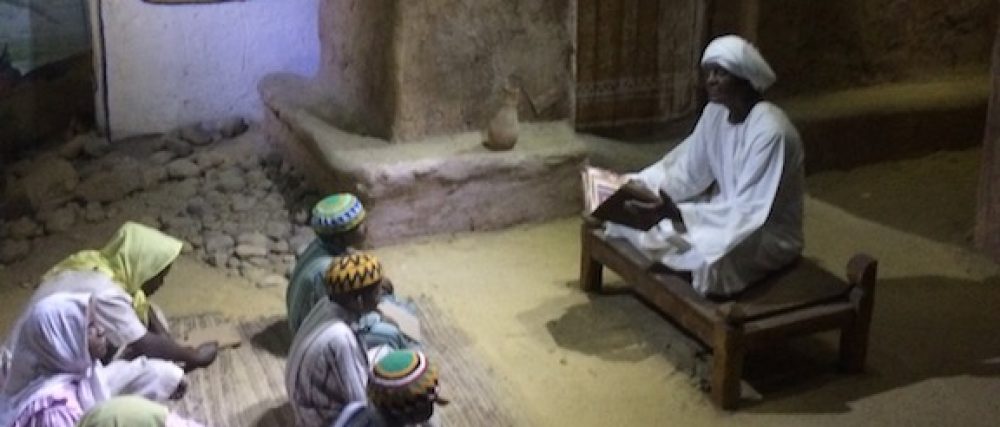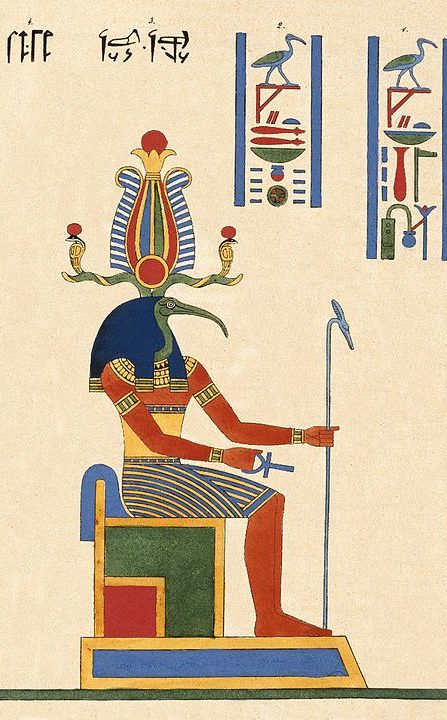In honor of the Mawlid al-Nabawī, the Maurchives present to you a seldom narrated story from the Prophetic Biography of Ibn Hishām, which indicates the mood in the world prior to the brith of the Prophet Muhammad. This and other narrations do not appear in the English translations and nor is it particularly “miraculous,” but it does set the stage for the coming of a new era…

Credit: Matthew.landry at English Wikipedia
The 6th century was a time of change. As documented in David Keys’ Catastrophe: A Investigation into the Origins of the Modern World, following the cataclysmic eruption of a volcano near Sumatra and Java in Southeast Asia, the world experienced a number of social, political, and religious shifts. Mesoamerican and Andes civilizations underwent geopolitical realignments, as did the Celts and Anglo-Saxons in Britain, and the Azars of Asia. Not the least of which was the plague and mounting political and religious vicissitudes that we know all too well in the Roman Empire at the time. It was precisely this era that the Prophet Muhammad was born.
Ibn Hishām narrates that shortly after his birth in the late 6th century, Muhammad was sent to the tribe of Banū Sa’d for nursing, to build his immunity (from the regional pandemic), and pick up their eloquent use of the Arabic language. After remaining with them during his formative years, his wet-nurse, Ḥalīma prepared to take him back to his mother in Mecca. The common narrative mentions two men in white accosting the young Muhammad and splitting his chest open. However, in this narrative, Ibn Hishām mentions a group of Abyssinian Naṣārā eyeing him as he traveled with Ḥalīma. The men questioned her about him, then declared that they would take him back to the king of Abyssinia for he has a great future ahead of him, which they knew better. Ḥalīma, obviously disturbed by this potential danger, was able to maneuver away from them and return Muhammad to his family in Mecca unharmed (Ibn Hishām, 219).
Again, while this story is not as miraculous as the common narrative, it shows that his prophethood was expected throughout the region, namely among the Naṣārā of Abyssinia. Their attempt to kidnap him in order to raise the Prophet under the protection of the African Negus is meaningful. Perhaps, this was among the reasons the early Muslims were able to find refuge in Abyssinia as they fled persecution from their people in Mecca. These men could have reported to the king and other influential people in their society that they saw a boy who had the signs of a prophet and when he reached out to him as the Prophet of God, they knew who he was.
References:
Ibn Hishām, Abū Muḥammad ʻAbd al-Malik ibn Hishām ibn Ayyūb al-Ḥimyarī. Al-Sīrah al-Nabawīyah. al-Juzʼ al-Awwal. Edited by Majdi Fathi Al-Sayyid. 1st ed. Cairo: Dār al-Sahāba lil-Turāth, 1995.
Keys, David. Catastrophe: A Investigation into the Origins of the Modern World. New York: Ballantine Books, 1999.

